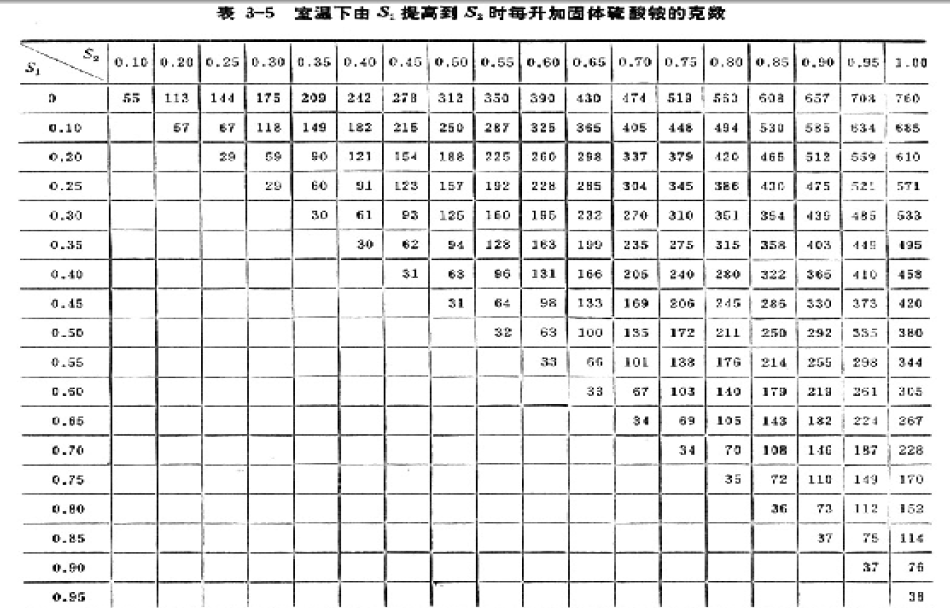Salting out The salting out method is the earliest application in protein and enzyme purification work, and it is still widely used today. The principle is that in a high concentration of salt solution, as the salt concentration increases, the charge on the surface of the protein is neutralized, the hydrated membrane is destroyed, and the protein molecules are aggregated and precipitated from the solution. The salting out method is a method of separating from each other according to the degree of decrease in solubility of various proteins in a certain concentration of salt solution. In salting out, the relationship between the solubility of a protein and the ionic strength in a solution can be expressed by the following formula: Where S0 is the solubility of the protein in pure water (ion strength I = 0), S is the solubility of the protein in a solution of ionic strength I, and KS is the salting out constant. In the above formula, when the temperature and pH are constant, S0 depends only on the nature of the protein. Thus for the same protein, S0 is a constant at a certain temperature and pH. Let Log S0 =β Then Log S=β-KS×I The salting out constant KS depends mainly on the nature of the salt (the valence of the ion of the salt and the average radius of the ion) and also on the nature of the protein. Different proteins have different KS values ​​in the same salt solution, and the larger the KS value, the better the salting out effect. It can be seen from the above formula that different proteins have respective β and KS values ​​in the same salt solution with constant temperature and pH. Different proteins can be separated by changing the ionic strength of the salt. This method is called segmental salting out. For the same salt solution, if the ionic strength is kept constant, the value of β can be changed by changing the temperature and pH, and the purpose of salting out separation can also be achieved. This method is called "beta segmentation salting out". When purifying proteins by salting out, attention should be paid to the selection of the following conditions. (1) Types of salt Neutral salts are commonly used for protein salting out. There are mainly ammonium sulfate, magnesium sulfate, sodium sulfate, sodium chloride, sodium phosphate and the like. The most widely used is ammonium sulphate, which has the following advantages: 1. The solubility of ammonium sulfate at a solubility of 25 ° C can reach 4.1 mol / L (541 g / L) or more. About 767g can be dissolved per liter of water. Within this high solubility range, many proteins and enzymes can be precipitated by salting out. Shanghai Chuangsai Technology provides 7601-54-9, Sodium phosphate monobasic for HPLC, ≥99.0%, commodity number: C13-17844-50g, the price is 586.62 yuan. 2. Temperature coefficient The solubility of small ammonium sulfate is not affected by temperature. For example, at 0 ° C, the solubility of ammonium sulfate can still reach 3.9 mol / L (515 g / L). About 676 g can be dissolved per liter of water. The use of ammonium sulphate is advantageous for the purification of the enzyme to be carried out under low temperature conditions. Shanghai Chuangsai Technology provides ammonium sulfate, Ammonium sulfate, ≥99.997% metals basis, 7783-20-2, commodity number: C16-A11026-10g, price 125 yuan. 3. Ammonium sulfate is not easy to cause protein denaturation, and has a protective effect on many kinds of enzymes, and is inexpensive and easy to obtain. A disadvantage of ammonium sulphate is that the ammonium ion interferes with the biuret reaction, which poses certain difficulties for the qualitative analysis of the protein. (ii) Salt concentration Segmental salting out is achieved by varying the concentration of the salt. The salt concentration should be accurately stepped up to the desired concentration for each protein. The concentration of the salt is usually expressed as saturation, and the saturated solution is set to 100%. There are two methods for adjusting the saturation of ammonium sulfate solution: 1. Calculation method of adding saturated solution If S2 is the desired saturation, S1 is the original saturation, V is the volume of the solution to achieve the desired saturation, and Vo is the original volume. then: The error caused by the change in volume is less than 2% and can be ignored. 2. Table lookup method (Table 1-3) The weight (grams) of solid ammonium sulfate required to increase the concentration of 1 liter of the salt solution having a saturation of S1 to the concentration of S2 can be directly found in the table. (3) pH value As mentioned earlier, the beta value is closely related to the pH of the solution. When the pH of the solution reaches the isoelectric point of the protein, the β value is the smallest, the solubility of the protein is the lowest, and it is most easily precipitated from the solution. Therefore, during salting out, the pH of the solution should be controlled to be close to the isoelectric point of the protein. (four) temperature The effect of temperature on the beta value is not as significant as the effect on pH. Therefore, the temperature requirements are not strict, the low temperature master If it is to prevent protein denaturation and degradation. (5) Protein concentration The higher the protein concentration in the solution, the lower the salt saturation required for salting out. Therefore, the protein concentration of salting out should not be too low, but too high protein concentration is not suitable, because it will co-precipitate with other proteins to affect the purity. Shanghai Chuangsai Technology has excellent performance, interleukin cytokines, fetal bovine serum, electrophoresis equipment scientific instruments, raw material drug standards, chemical reagents, cell culture consumables, Shanghai Chuangsai, mass products special promotions, welcome to inquire! Storage Utensils, Stainless Steel Storage Utensils, 304SS Storage Utensils Fucheng Metals Production Co., Ltd. of Jiangmen City , https://www.fcmp.com![]()
![]()

Separation and purification experiment using protein as an example